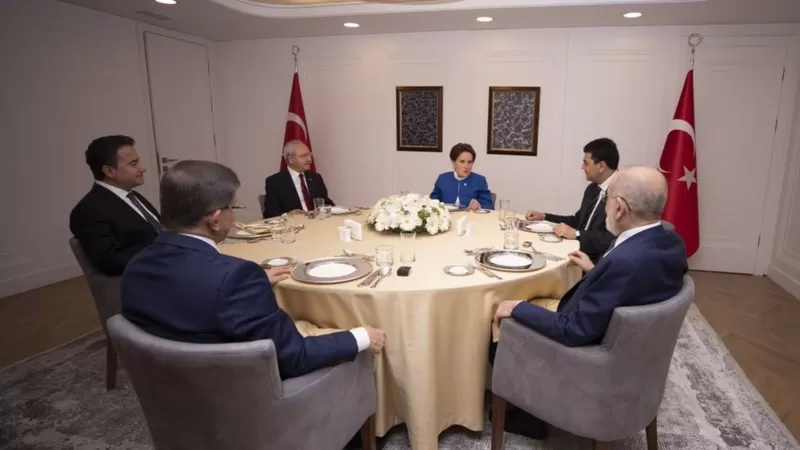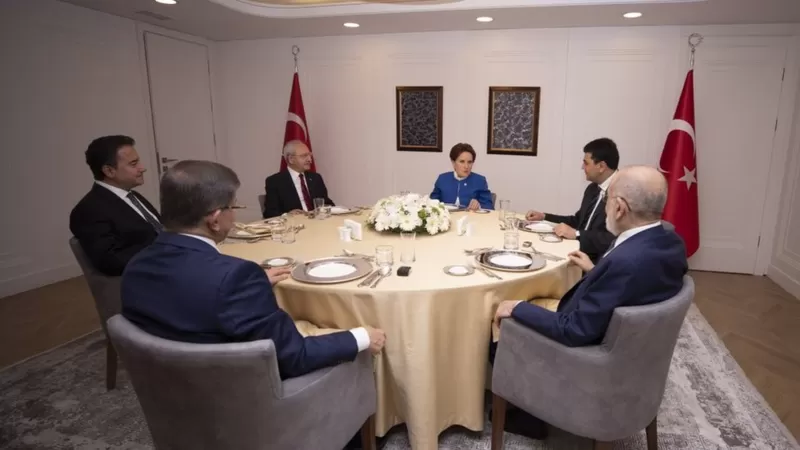Address
304 North Cardinal St.
Dorchester Center, MA 02124
Work Hours
Monday to Friday: 7AM - 7PM
Weekend: 10AM - 5PM
Address
304 North Cardinal St.
Dorchester Center, MA 02124
Work Hours
Monday to Friday: 7AM - 7PM
Weekend: 10AM - 5PM


Turkey has been experiencing its worst economic conditions in the last couple of years which got even worse in 2022. The Central Bank of the Republic of Turkey (TCMB) has announced its USD and gold reserves on 26 August 2022. Turkey’s gross reserve fell by $647mil to $70.8bn, and its net reserve dropped by $1.26bn to $12.62bn. The Turkish Lira (TL) lost 67% of its value against the U.S Dollar since 1 January 2022. The official inflation is just over 80% while economist Steve Hanke measures Turkey’s inflation rate as 139% for the year. Meanwhile, tensions with Greece over the EEZ and Aegean islands are artificially escalating. Given all these, it is obvious that the economic crisis and foreign policy issues will have a prevalent position within the minds of Turkish voters in the upcoming elections, scheduled for June 2023. The opposition parties, however, remain either silent or inactive towards these issues. It is especially hard to predict what kind of foreign policy the opposition bloc would follow if they win the elections next year.
Since its foundation in 1923 Turkey has experienced political shifts and different agendas roughly in every decade. Although right or left wing parties followed different domestic policies, the traditional foreign affairs agenda has generally been followed by the governments. The Ministry of Foreign Affairs’ own trained bureaucrats, the army which had an influence in politics, and presidents also kept the traditional policies on its track. This includes Erdoğan’s predecessor Abdullah Gül, who was a founding member of the AKP and the foreign minister of the first Erdoğan governments. However, especially after Erdoğan’s tenure as president since 2014, Turkey’s traditional foreign policy agenda has shifted dramatically from its historical western orientation to assuming a leadership role in the Islamic world, and alliance with Putin’s Russia to establish a balance with the West. To make Turkey more independent from the western influence, Ankara purchased the Russian-made advanced air defence system S-400, which led to US sanctions being imposed, while Turkey was sidelined from the F-35 fighter aircraft project in which it played a major role both as a contributor and as a buyer. In the end, the S-400s cost Turkey $2bn and diplomatic isolation. The opposition raised some questions about the purchase but never discussed it publicly as a matter of foreign affairs.
Turkey has also followed an unbalanced policy with Syria and Israel in the last two decades. In the early 2000s Erdoğan used to call Syrian leader Bashar al-Assad as “brother” although since the start of the Syrian Civil War in 2011 he refused to have any conversation with him despite having over 4 million Syrian refugees in Turkey. Refugees recently became one of the hot topics in Turkish politics and Erdoğan’s government has yet to offer a tangible plan to solve the crisis. Meanwhile ultra-nationalist Victory Party (ZP) and its leader Ümit Özdağ, proposes to send all Syrians, Afghans, and Pakistanis back to their country of origin even if it requires paying their coach tickets. This unorthodox proposal seems attractive for some voters and increases the popularity of Özdağ. However, the People’s Republican Party (CHP), Good Party (İYİP), and other opposition parties do not clearly state or discuss the matter in any detail other than arguing that they would solve it once they come to power.
With Israel, the relations have been tense due to Turkey’s apparent hospitality towards some Hamas leaders, and the violence in the Palestinian territories. However, this year the sides achieved an improvement in their relations, including mutually appointing ambassadors four years after they were called back. While, Erdoğan and the AKP create and shift their policies towards Israel and Palestine as they see fit, the opposition mostly remains silent without announcing any support or criticism.
Tensions with Greece on Cyprus and the East Mediterranean have also been important foreign policy matters on which the opposition does not clearly state any position. Their comments are usually broad, so far from demonstrating any body of knowledge. They again neither clearly support the government’s arguments nor strongly criticise them.
The opposition leaders fail to show a vision of their foreign policy if they win the upcoming elections. They do emphasise national unity, contrary to Erdoğan, but they avoid offering any discussions about it. Interestingly, they even miss opportunities available for them. On July 30, German foreign minister, Annalena Baerbock, announced her intention to meet with the opposition parties in the parliament. Only the HDP co-leaders responded affirmatively while the CHP and İYİP appointed lower rank party members to meet with the German foreign minister. According to former diplomat Selim Kuneralp, this was a mistake for those parties which have a stake in Turkey’s future. A meeting with a foreign representative, according to Kuneralp, could give them a chance to express their agenda for Turkey after the upcoming elections. However, none of the potential opposition candidates, nor the leaders of the parties show a strong sign or understanding about the foreign policy. For example, one of the potential candidates for the presidency, Ekrem İmamoğlu, who double defeated the AKP candidate, former prime minister Binali Yıldırım, for the mayorship of İstanbul in 2019, joined the Munich Security Conference last February just around the time when the Russo-Ukrainian War broke out. His aspiration to run for the presidency is widely accepted but his comments at the conference were far from a deep understanding of geopolitics and strategy.
Finally, in addition to the opposition’s potential incapabilities in managing Turkish foreign policy, it should be remembered that the job has been poorly managed by the AKP for the last twenty years. During this period, the ruling party damaged the ministry’s traditional bureaucracy and deployed like-minded officials and even relatives of top AKP members/ministers. Therefore, rather than taking over an established foreign policy-making bureaucracy, the opposition would need to depose AKP nepotism, firstly. However, so far it does not seem like many skilled and qualified foreign affairs experts are available in the opposition lists.
In conclusion, Erdoğan has shifted Turkey’s foreign policy as he wished in the last decade. AKP ministers seem to exploit their positions with nepotism rather than training skilled and qualified bureaucrats. Neither the CHP nor the İYİP, as the biggest opposition parties, demonstrate a sign of a body of foreign policy knowledge or expertise. On the contrary, they rather show a low interest in foreign affairs. Their election campaign policy is mainly based on “anti-AKP” positioning rather than proposing a better deal than what Erdoğan has given the voters. In the case of an opposition takeover in June 2023, Turkey will have to face some international diplomatic and foreign affairs issues which can damage the country’s reputation even more.